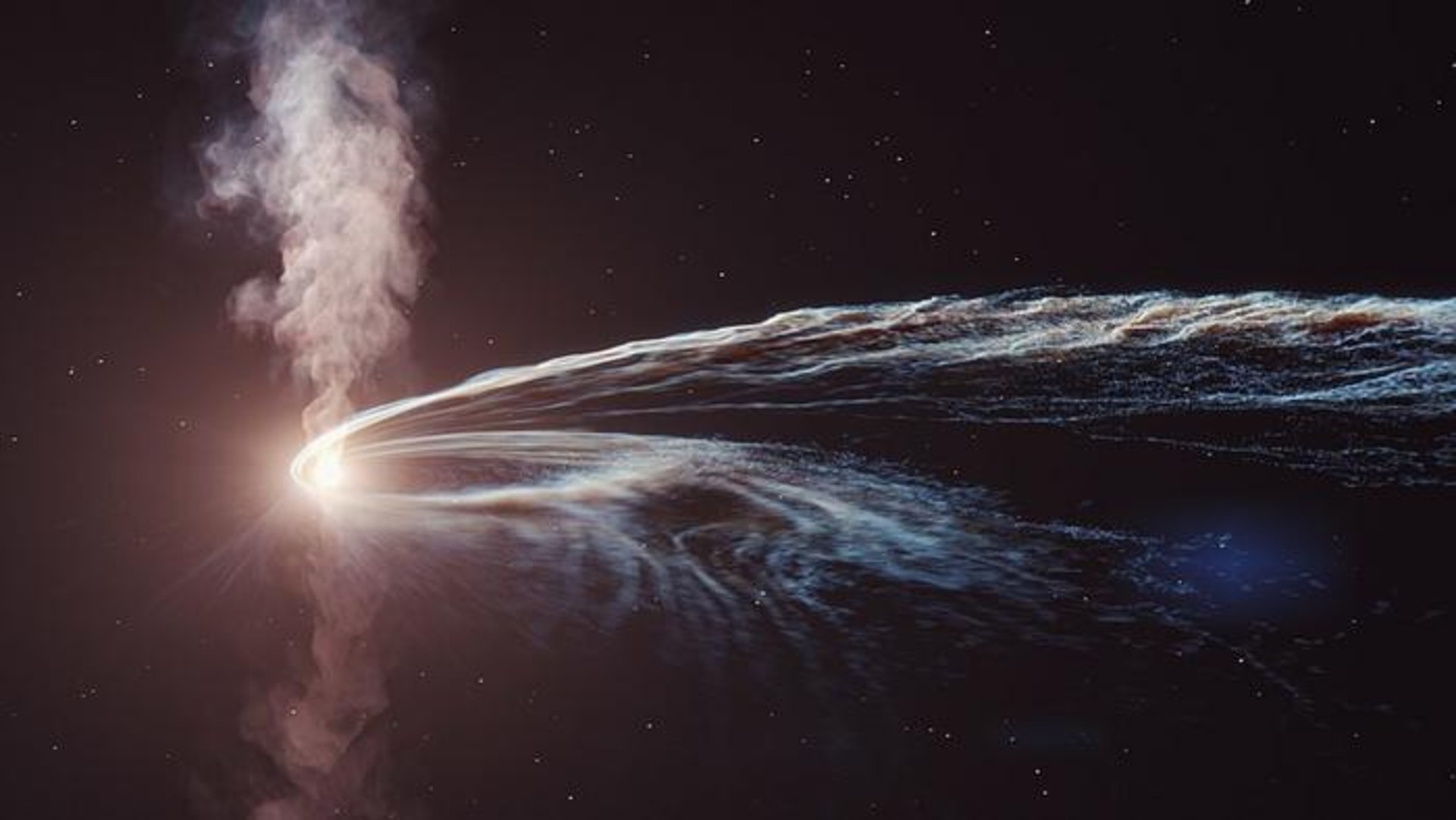2 Asteroids to Pass Earth Closer Than the Moon
Breaking space news, the latest updates on rocket launches, skywatching events and more!
You are now subscribed
Your newsletter sign-up was successful
Want to add more newsletters?

Delivered daily
Daily Newsletter
Breaking space news, the latest updates on rocket launches, skywatching events and more!

Once a month
Watch This Space
Sign up to our monthly entertainment newsletter to keep up with all our coverage of the latest sci-fi and space movies, tv shows, games and books.

Once a week
Night Sky This Week
Discover this week's must-see night sky events, moon phases, and stunning astrophotos. Sign up for our skywatching newsletter and explore the universe with us!

Twice a month
Strange New Words
Space.com's Sci-Fi Reader's Club. Read a sci-fi short story every month and join a virtual community of fellow science fiction fans!
This story was updated at 1:55 p.m. ET.
In an unprecedentedevent for astronomers, two asteroids will swing past the Earth Wednesday at adistance closer than the moon.
The two asteroids,which will not be visible to the naked eye, were only recently discovered by astronomerswith the Mount Lemmon Survey in Tucson, Ariz. They are in different orbits with close passes that will come nearly11 hours apart. While scientists say neither threatens to strike the planet, thetwo space rocks do provide a challenging skywatching opportunity.
Other asteroidshave been known to make such close passes, but it is rare for two to be spotted zooming in at the same time. Because of the asteroids' movement,finding and tracking them across the sky will be a challenge for seasonedskywatchers. [ImageGallery: Asteroids]
The smallerasteroid, 2010 RF12 will have a closer pass, at almost 49,000 miles (about79,000 km).
This is higherthan communications satellites in geosynchronous orbit 22,369 miles(36,000 km) above Earth. On average, the moon is about roughly 238,600 miles(384,000 km) from Earth, so 2010 RF12 will pass by at nearly 0.2 of that lunardistance.
Asteroid2010 RF12 is a small space rock, estimated to be between 19 and 42.6 feet (5.8to 13 meters) wide, according to NASA's Near-EarthObject Program at the Jet Propulsion Laboratory in Pasadena, Calif.
Breaking space news, the latest updates on rocket launches, skywatching events and more!
As theasteroid swings by our planet and gains speed, it should also brighten, but it willstill be very hard to spot, astronomers have said. Its closest approach will beat 5:18 p.m. EDT (2118 GMT) on Wednesday.
"But bythen it will be difficult (to see) from any location on Earth," said RichardMiles, director of the Asteroids and Remote Planets Section at the BritishAstronomical Association.
The larger spacerock, 2010 RX30, will visit first, passing Earth at a range of aboutthree-fifths of the Earth-moon distance, or about 154,000 miles (248,000 km).It is estimated to be between 33 and 72 feet (10 to 22 meters) wide, accordingto the JPL asteroid database.
This largerasteroid "should be able to be followed to within about 6 hours of closestapproach," Miles said in a statement. NASA asteroid trackers said the closest approachof 2010 RX30 will be Wednesday at 5:51 a.m. EDT (0951 GMT).
Intelescopes, 2010 RX30 should be visible all night between Tuesday and Wednesdaybut could be tricky to spot as it crosses the sky at a swift pace. ?
Seasonedskywatchers equipped with telescopes, particularly in the Southern Hemisphere,could see 2010 RF12 reach 13th magnitude between 1600 and 1700 GMT (noon and 1p.m. EDT), Miles said.
Magnitude isa measure of how bright an object in the sky is, with lower numberscorresponding to brighter objects. Anything magnitude 6.5 and above is notvisible to the naked eye.
"Asseen visually in a large telescope (30-cm aperture or more), its motionacross the sky would be very apparent in real time," Miles wrote.
Using anetwork of telescopes on the ground and in space, NASA experts and otherastronomers routinely track asteroids and comets that may fly uncomfortably nearthe Earth.
The space agency'sNear-Earth Object Observations program is responsible for finding potentiallydangerous asteroids and studying their orbits to determine if they pose arisk of hitting the Earth.

Denise Chow is a former Space.com staff writer who then worked as assistant managing editor at Live Science before moving to NBC News as a science reporter, where she focuses on general science and climate change. She spent two years with Space.com, writing about rocket launches and covering NASA's final three space shuttle missions, before joining the Live Science team in 2013. A Canadian transplant, Denise has a bachelor's degree from the University of Toronto, and a master's degree in journalism from New York University. At NBC News, Denise covers general science and climate change.
